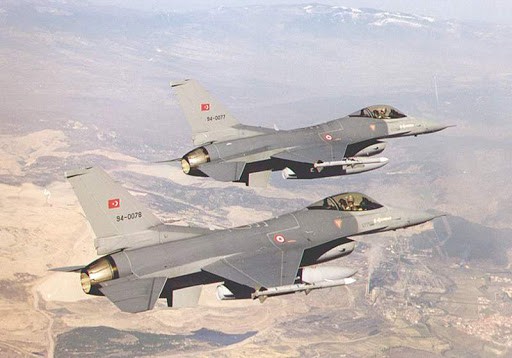space cadet
SENIOR MEMBER
Turkey Flexes Military Muscle in Maritime Feud With Greece
By Selcan Hacaoglu and Paul Tugwell
Turkey Flexes Military Muscle in Maritime Feud With Greece
Turkey launched naval exercises off two Greek islands and announced energy exploration research in the same area, projecting its military might amid heightened territorial tussles in the eastern Mediterranean.
The naval drills to the east and south of Rhodes and Kastellorizo were announced on Aug. 6 — the same day Egypt and Greece signed an agreement laying out the maritime boundary between their exclusive economic zones. Turkey, which has signed a similar maritime deal with Libya with the same purpose, has called the agreement between Greece and Egypt null and void, and accused Athens of failing to abide by pledges to bilaterally solve territorial disputes in energy-rich waters of the Mediterranean.
Turkey doesn’t recognize Greece’s claim that its territorial waters start immediately south of Kastellorizo, the most distant Greek outpost. The gunnery exercises that will run through Tuesday, according to a Turkish navy website, are a message that Ankara won’t accept any agreement or move that would limit its own maritime interests in the Mediterranean.
Greek Prime Minister Kyriakos Mitsotakis was scheduled to chair a meeting in Athens of the Government Council for National Security on Monday. Greek Minister of State Yiorgos Gerapetritis told state-run ERT TV that his country was prepared to counter any Turkish move, and people familiar with the matter said he’ll be speaking with NATO Secretary General Jens Stoltenberg later Monday.
Mitsotakis to Speak With NATO’s Stoltenberg Amid Turkey Tensions
“We were engaged in talks with Greece for the last two-and-a-half months in Berlin and had even agreed on a joint statement but Greece announced its deal with Egypt just a day before it,” Turkish President Recep Tayyip Erdogan’s spokesman Ibrahim Kalin told CNN-Turk television in an interview late Sunday. “It is out of question for us to approve any move that will condemn Turkey to the bay of Antalya and exclude it from the eastern Mediterranean. But we still prefer to solve issues through dialogue.”
Turkey resumed oil and natural gas exploration work in the eastern Mediterranean after the Greek-Egyptian deal was signed, having put it on hold at the request of Germany’s Angela Merkel to make it easier for her to mediate between Athens and Ankara.
“We’ve received Turkey’s decision to carry out further seismic probes in the eastern Mediterranean with concern,” the German Foreign Ministry’s spokesman, Christofer Burger, said during a news conference in Berlin on Monday, urging both Greece and Turkey to resume talks. “That’s the wrong signal. Unilateral steps don’t bring us forward a single bit. Moreover, Turkey further burdens its relationship with the EU.”
Turkey’s Energy Minister Fatih Donmez said in a Twitter post that the Oruc Reis seismic exploration ship was dispatched to the Mediterranean on Monday.
The eastern Mediterranean has become a gas hot spot with big finds for Cyprus, Israel and Egypt in recent years. Turkey — which sent troops to northern Cyprus in the wake of a 1974 coup aimed at uniting the island with Greece — vehemently opposes the Cypriot drilling without an agreement on sharing any proceeds. It also has plans to drill in those waters, over the objections of Cyprus, which considers the Turkish exploration an infringement of its territorial sovereignty.
The internationally recognized government of the Republic of Cyprus has licensed several offshore exploration blocks, some of them located in disputed waters. Cyprus has an agreement with Exxon Mobil, Total SA and Eni SpA for oil and natural gas exploration rights in an area where Turkey wants to drill.
The European Union has said it is weighing sanctions against Turkey over its oil and natural-gas exploration off Cyprus.
©2020 Bloomberg L.P.
Bloomberg.com



